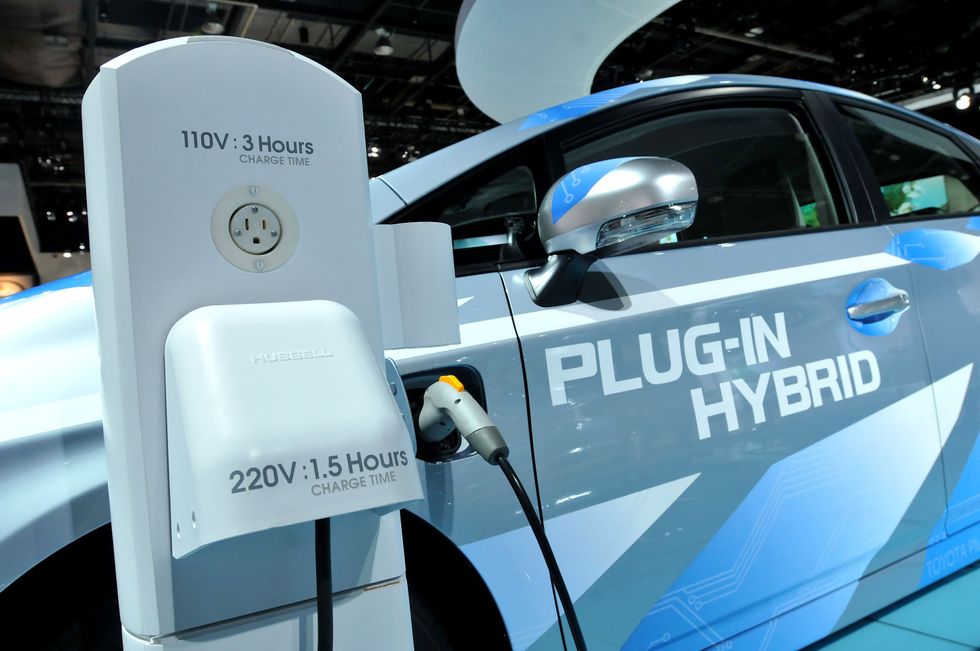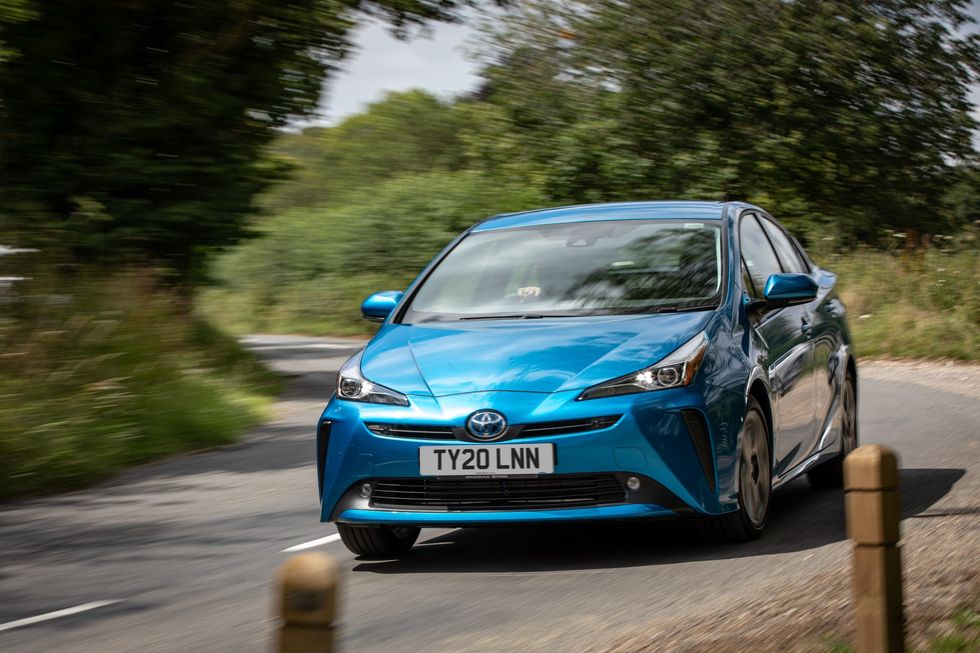At present, the sale of new hybrid vehicles will continue until 2035
Don't Miss
Most Read
Trending on GB News
A leading motoring expert has called for the Government to remove incentives for hybrid vehicles in favour of boosting support for electric vehicles.
Data from the Society of Motor Manufacturers and Traders (SMMT) found that 261,000 hybrid electric vehicles and 167,000 plug-in hybrid vehicles were registered in 2024.
This represented an impressive 9.6 per cent and 18.3 per cent year-on-year change as motorists make the switch to vehicles that are more environmentally friendly than petrol or diesel vehicles.
Despite the popularity, more battery electric cars were registered in 2024 with almost 382,000 vehicles, showing the growing trend in the switch to zero emission motoring.
Do you have a story you'd like to share? Get in touch by emailingmotoring@gbnews.uk

Experts have slammed the continued promotion of hybrid vehicles
GETTY
As the Government considers whether to allow the sale of new hybrid vehicles past the end of the decade, an expert has come out to slam the continued promotion of hybrid vehicles.
Alex Ingram, Chief Reviewer at Auto Express, said plug-in hybrid vehicles fail to deliver on their promises, noting financial and environmental issues.
He cited a long-term road test for the Alfa Romeo Tonale PHEV which achieved 35.3mpg over 4,500 miles, while a Range Rover Evoque managed less than 30mpg once the electric battery had depleted.
This is a stark difference compared to the official WLTP tests quoted by manufacturers that the vehicles could achieve 217mpg and 191mph respectively.
Ingram said: "These figures expose the inherent flaws in PHEVs when they aren’t charged consistently.
"Their performance quickly deteriorates, leaving consumers with inefficient, heavy vehicles that fail to justify their higher upfront costs."
The expert also pointed to research from a European Commission study which found that real-world CO2 emissions of petrol petrol PHEVs are 238 per cent higher than their official WLTP figures, with diesel PHEVs performing even worse at 312 per cent.
Ingram, alongside Auto Express, is calling on the Government to focus on incentivising efficient and smaller electric vehicles, rather than hybrid vehicles.
Plug-in hybrid vehicles are often seen and advertised as the bridge between internal combustion engine cars and electric vehicles, although data shows that drivers are increasingly making a direct switch from an ICE car to an EV.
Transport Secretary Heidi Alexander recently told Parliament that no new petrol or diesel cars will be sold after 2030, as well as confirming that all new cars and vans will need to be 100 per cent zero emission by 2035.
This will keep open a "loophole" that will allow motorists to purchase a new plug-in hybrid vehicle after the end of the decade.
If this measure is to be confirmed by the Government, popular models like the Toyota Prius could still be sold until the end of 2034 if drivers are not yet ready to switch to an electric vehicle.
LATEST DEVELOPMENTS:
 The Toyota Prius is one of the most popular hybrid vehicles around the world TOYOTA
The Toyota Prius is one of the most popular hybrid vehicles around the world TOYOTAIngram added: "On the whole, I hope that those in power will soon see most PHEVs for the worst-of-both-worlds compromise that they are and remove any incentives as soon as possible.
"If they really saw sense, I’d like to see Governments incentivise only small EVs and, to a lesser extent, compact petrol cars. But I fear that amount of common sense is wishful thinking."









